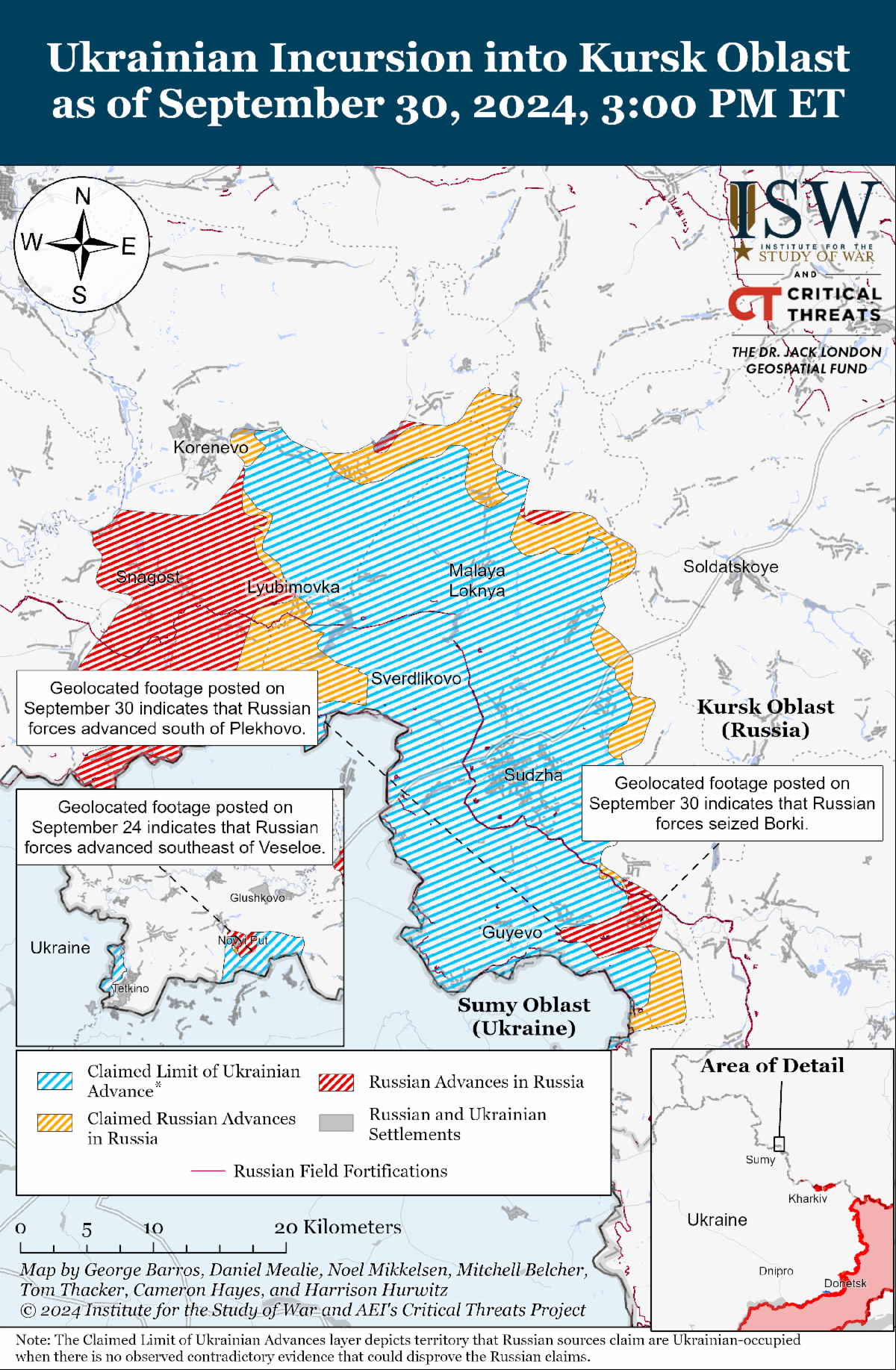The Russian government plans to spend 17 trillion rubles ($183 billion) on national security and defense in 2025 — about 41 percent of its annual expenditures. The Russian government submitted a bill on the federal budget for 2025 to 2027 to the State Duma on September 30. The bill projects federal revenues to be 40.3 trillion rubles ($433 billion) in 2025 and federal expenditures to amount to 41.5 trillion rubles ($446 billion). The budget calls for 13.5 trillion rubles ($145 billion) to go towards "National Defense" expenditures in 2025 and projects that defense spending will decrease to 12.8 trillion rubles ($137 billion) in 2026 but increase to 13 trillion rubles ($139 billion) in 2027. The 2025 budget also calls for 3.5 trillion rubles ($37 billion) towards "National Security" — meaning that Russia plans to commit about 41 percent of its expenditures in 2025 to combined "defense" and "security" expenses. The budget notably allocates 14.03 billion rubles ($151 million) annually from 2025 to 2027 to the creation of a mobilization reserve in the Russian Armed Forces. The bill calls for about 40 billion rubles ($430 million) in 2025 to fund the "Defenders of the Fatherland Fund," which supports Russian veterans and their families. The Russian government is also earmarking significant funding towards developing new technologies. The 2025–2027 budget allocates 6.1 trillion rubles ($65 billion) for measures to "achieve technological leadership," 234.4 billion rubles ($2.5 billion) for machine-tool production, 112.1 billion rubles ($1.2 billion) for the "Unmanned Aircraft Systems" production project, 46.9 billion rubles ($504 million) for the development of new nuclear and energy technologies, and 175.3 billion rubles ($1.8 billion) for the development of radio and microelectronics. Increases in defense spending do not necessarily equate to increased military capabilities, however, especially when significant funding is going towards paying benefits to Russian soldiers, veterans, and their families.
The Russian budget will continue to support various social programs, including the Kremlin's pro-natalist programs, but a continued focus on defense spending is likely affecting the effectiveness and sustainability of these programs. The "Social Policy" section of the 2025 budget accounts for 6.4 trillion rubles ($69 billion). The bill allocates about 4 trillion rubles ($43 billion) between 2025 and 2027 for payments to people with children and about 1.7 trillion rubles ($18 billion) for Russia's maternity capital program through 2030. The budget accounts for 1.57 trillion rubles ($16 billion) for education in 2025, and healthcare spending accounts for 1.86 trillion rubles ($20 billion) in 2025 and 2026. The Russian government has allocated 824 billion rubles ($8.8 million) for the payment of state pensions in 2025 and 1.36 trillion rubles ($14 billion) for recently announced pension increases. Russian opposition outlet Meduza noted that the Russian government press release highlighted funding for pregnant women, families with children, national projects, and regional support but did not mention defense spending. Kremlin officials similarly highlighted social spending while avoiding discussions of increased defense spending on September 29 when the Cabinet of Ministers initially approved the draft federal budget, likely due to the Kremlin's wariness about war fatigue among the Russian population. Sustained high levels of defense spending in the coming years during a protracted war in Ukraine and continued military preparations for a possible conflict with NATO will make it more difficult for the Kremlin to sustain funding for the social programs that the Russian population cares about, such as pension increases and healthcare. Increased defense spending will also affect the long-term effectiveness of the Kremlin's efforts to use financial incentives to increase Russia's birth rate and reverse Russia's demographic crisis. Popular demands for increased social and decreased defense funding in the future may also hamper the Kremlin's ability to sustain its war in Ukraine as Russian President Vladimir Putin must take his regime's stability and domestic support into account.
Key Takeaways:
The Russian government plans to spend 17 trillion rubles ($183 billion) on national security and defense in 2025 — about 41 percent of its annual expenditures. The Russian budget will continue to support various social programs, including the Kremlin's pronatalist programs, but a continued focus on defense spending is likely affecting the effectiveness and sustainability of these programs.
Russian President Vladimir Putin promoted Presidential Aide and close personal ally Alexei Dyumin to the Russian Security Council alongside three other officials.
The Kremlin continues to use state and regional awards to coopt previously critical milbloggers as part of wider efforts to gain control over the information space. Russian Prime Minister Mikhail Mishustin arrived in Tehran on September 30 to meet with various Iranian officials and highlight Russo-Iranian economic cooperation.
Russian forces recently advanced in Glushkvosky Raion, Kursk Oblast, and Ukrainian and Russian forces recently advanced within the Ukrainian salient in Kursk Oblast.
Russian forces recently advanced near Svatove, Chasiv Yar, Toretsk, Pokrovsk, and Donetsk City.
Russian President Vladimir Putin signed on September 30 the decree on Russia’s usual semi-annual fall conscription for 133,000 draftees. | 




